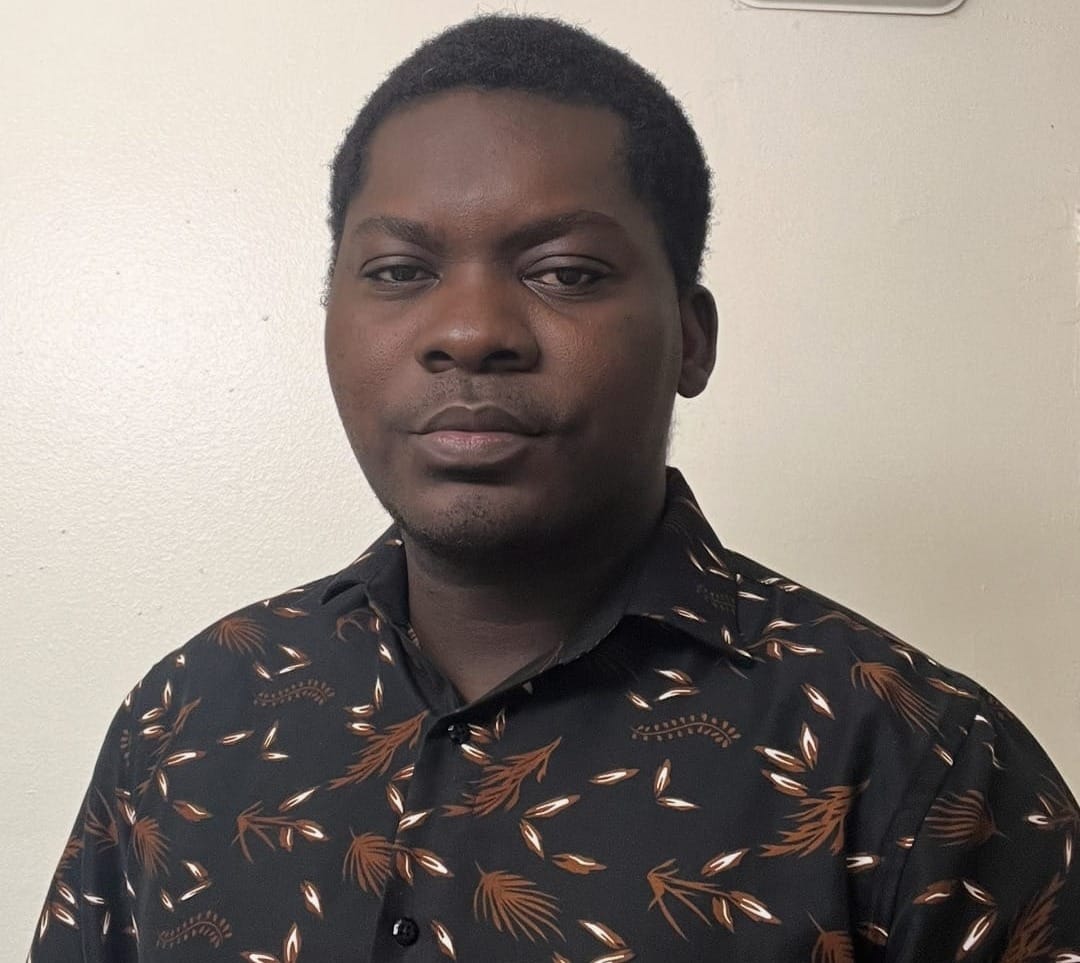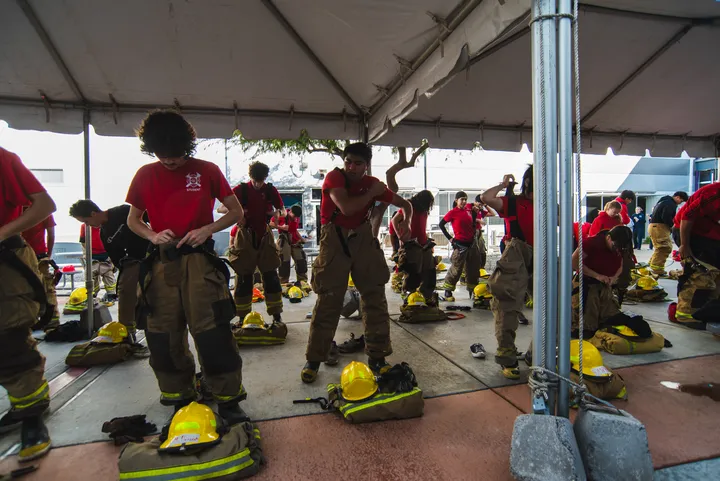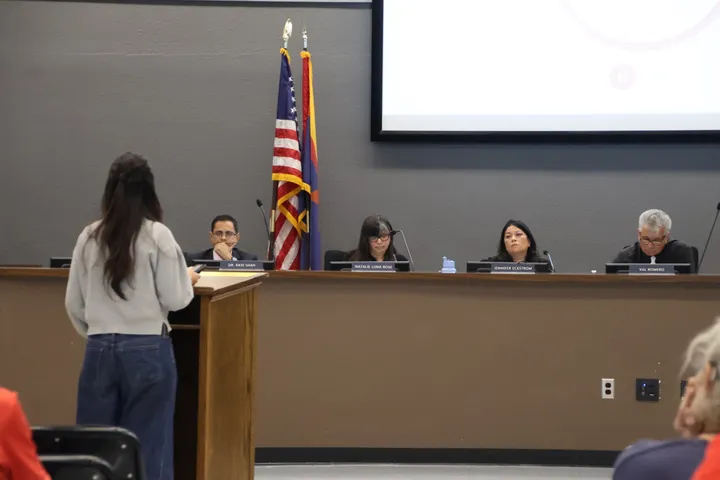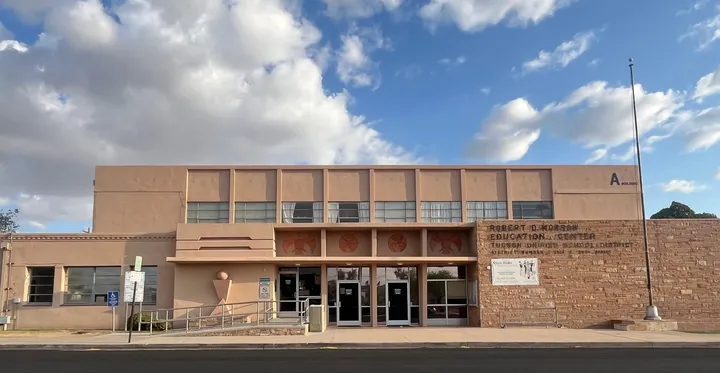International students face steep job hurdles amid policy shifts, hiring challenges
Despite record international enrollment at the University of Arizona, many global students and graduates are struggling to find employment due to immigration hurdles, visa limitations, and a cautious job market.

Despite record-breaking international enrollment at the University of Arizona, many of Tucson’s global students and professionals are struggling to find stable work, caught between rising local unemployment, uncertain immigration policies and a job market wary of hiring non-citizens.
In 2024, the UA set a new record for the highest number of countries represented among its international students, with 141. In the incoming freshman class alone, more than 50% self-identified as ethnicities other than white.
While Tucson is also home to tens of thousands of residents born outside the United States, many of those international job seekers are struggling to find work.
“I knew that finding a job as an international student is difficult. But I feel like it has become more difficult now,” said Diana Ramos, a Venezuelan graduate student in the UA’s Latin American Studies program.
Ramos graduated with her bachelor’s degree in journalism in 2022 and was a member of the school’s track team for six years, competing in the high jump. She’s wrapping up her master’s degree this week but is concerned about her employment prospects.
“I don't feel as prepared in the sense that I'm kind of still unsure of what I can do with (my Latin American Studies) degree. But I feel like I'm confident in my other external skills, like journalism,” she said. “At this point, I'm just kind of really open to exploring different areas.”
International graduate student enrollment increased 10% in the 2024–25 school year, but the political climate has drastically changed in recent months.
Earlier this year, the Trump administration terminated the visas of many international students, sparking significant concern among students, universities and immigration attorneys, with many students fearing immediate deportation. The administration later reversed course, restoring the legal status of many of these students.
Still, many are concerned about what this and future actions could mean for employment prospects.
“The system is kind of broken,” Ramos said. “With Optional Practical Training, you apply, you pay $470, and they could deny it.”

Optional Practical Training, or OPT, is a program that allows F-1 international students to work in the United States for 12 to 24 months. In addition to paying the application fee and the International Student Services fee of $75, applicants must pre-select a day when they expect to begin their employment.
“A lot of people that apply don't have a job,” Ramos said. “They don't know when they're going to start. So you're kind of like gambling with a date.”
Ramos was referred to a journalism job in Nogales through Report for America, applied for the position and spoke to a representative in March. The interview went well, she said — until the subject of her OPT and international student status came up.
Ramos’ OPT was only for one year, and because the position lasted two years, she was told she was no longer a viable candidate. She was hoping for some wiggle room, but that wasn’t the case.
“The lady was super nice to me, (but) she said we don’t do that,” Ramos said. “I was just kinda disappointed, because it’s a new job.”
These difficulties also exist for international students who have already graduated.
Emanuel Inacio, an Angolan insurance agent who studied electrical and computer engineering at the UA, has struggled to find a job in Tucson.
“For us international students, I think there should be more available information (from the UA),” Inacio told Tucson Spotlight in Portuguese. “In my country, for example, people often do internships after they finish college, not necessarily while they are studying.”
Originally, Inacio was seeking a job in computer engineering or programming, but that was a nonstarter.
“One of the difficulties has to do with the job market in my industry,” Inacio said. “The programming industry itself has suffered many layoffs already. Google recently laid off over 2,000 employees.”
In January, Inacio was hired as an agent with Jackson Hewitt in a temporary three-month position. When that contract was completed, he found work as an insurance agent.

While Inacio doesn’t have to worry about legal residency, having applied for his permanent residency and green card last year, he still feels there needs to be a better system for international people living in the United States.
“Many large companies at this time prefer not to hire international students because they have to deal with the immigration process,” Inacio said. “This has happened to me many times.”
He applied for a job in his field in 2020 as he was wrapping up his undergraduate degree. After participating in four interviews, he made it to the final round of applicants. During his fifth and final interview, the human resources representative asked him about his international status and OPT timeline, then ultimately said he wouldn’t be getting the job.
“This process went on for five months,” Inacio said. “And then they decided not to continue with me. But after having gone through this whole long process … I think it’s one of the biggest difficulties for international students.”
Still, Inacio says it’s his dream to someday work in his field as a computer programmer.
While Ramos and Inacio are navigating the complexities of post-graduate employment, others are already immersed in the realities of the working world in Tucson and far from the careers they envisioned.
Alexsandra Dourado has worked as a janitor at the UA since 2022, arriving in Tucson in 2020 when her husband found work in Marana.
A Brazilian, Dourado said moving to a new city was difficult. She knew some English and was learning Spanish while also trying to fit into a new culture during the COVID-19 pandemic.
“I was dying of fear because I got the Pfizer vaccine but my son had not had any shots yet. I went to Cancun and quarantined my son for 15 days,” she said. “The only time I got (infected) was when I was working here at the food court (at the UA).”

Before taking the job with the UA, Dourado had never worked a cleaning job before — and never really wanted to.
“October will be three years (of custodial work), but it seems like forever,” she said.
Dourado earned her bachelor’s degree in Brazil in history and thought about applying to be a student at the UA so she could eventually become a professor.
She applied to take a specialty program in the Portuguese Department next fall, and after she was put on the waiting list, her application was eventually denied.
At 50 years old, Dourado says she doesn’t know how much longer she’ll be able to work as a custodian.
“I'm a small, thin woman. I don't have much strength, and my health is deteriorating, which is hard,” she said.
She said working three to four days a week is still exhausting, especially with her commute home to Marana. After she showers and has dinner, there isn’t much time left to spend with her family.
“I want a job where I feel less tired, where I could have time to access the internet, study and do something else,” she said. “Cleaning is very hard work. But a mother is capable of anything.”
With the semester coming to a close, Latin American Studies student Ramos is looking for ways to stay afloat if she’s not able to find a job in the first three months after she graduates.
“If I can’t get a job in 60 to 90 days, I would have to go back home, so that's something that is pressuring me,” she said.
While Ramos is hopeful that she’ll be able to find a job, she acknowledges that it won’t be easy.
“With the political climate right now, I feel like Latin American journalism is not playing in my favor — the whole anti-migrant rhetoric against Latin American people,” she said. “I feel like I'm in a really bad spot, kind of. It just feels a little bit like targeting what I do.”
Thatcher Warrick Hess is a graduate student in the University of Arizona's bilingual journalism program and Tucson Spotlight intern. Contact him at twarrickhess@arizona.edu..
Tucson Spotlight is a community-based newsroom that provides paid opportunities for students and rising journalists in Southern Arizona. Please support our work with a paid subscription.



